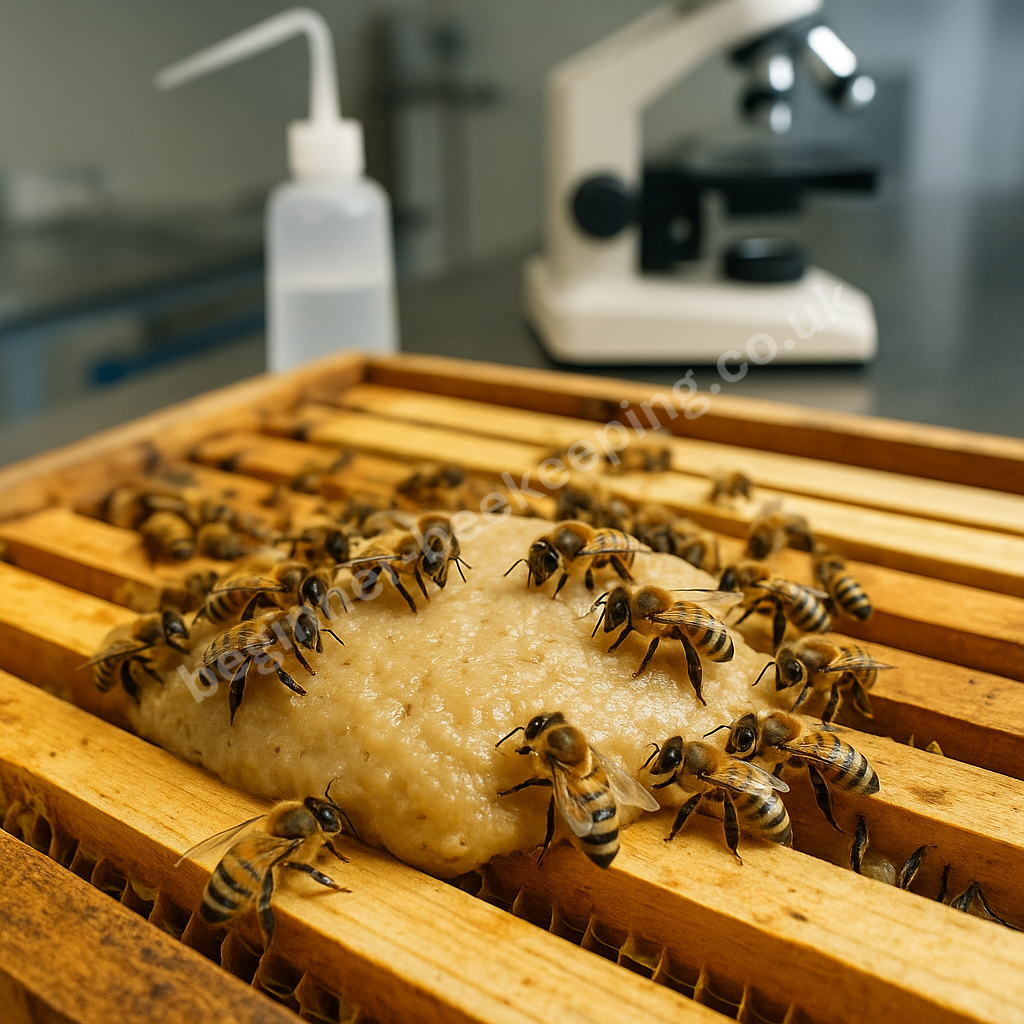In recent years UK beekeepers have faced mounting pressures: reduced floral diversity, unpredictable weather, parasites, pesticides and landscape change. Against this backdrop, a significant scientific breakthrough may offer a fresh tool. Researchers at Oxford University, working alongside Kew, Greenwich and partners in Denmark, have engineered a yeast‑based supplement that supplies the full suite of sterols bees require for healthy brood production.
Why sterols matter
Sterols are lipid compounds vital for growth, cell membranes, immunity and reproduction. Natural pollen delivers them, but when flowers are few or varied, substitute diets fall short. The research team used gene‑editing in the yeast Yarrowia lipolytica to produce six key sterols and included these in bee‑feed trials. The results? Colonies fed the enriched diet reared up to 15 times more larvae than controls.
What this means for UK beekeepers
For the UK, where monocultures dominate and wildflowers recede, nutritional stress is real. The supplement opens a path to strengthen hives before winter or during forage‑lean periods. But it is not a silver‑bullet: field trials beyond controlled glasshouses are needed, cost and supply must be considered, and husbandry remains critical.
Practical advice
- Monitor your hives: brood patterns, strength, forage sources.
- In lean periods, consider adding sterol‑rich feed (once available commercially) alongside sugar/honey stores.
- Maintain all other pillars: parasite control (varroa/tracheal mites), forage diversity, pesticide awareness, habitat.
- Engage your community: planting wildflower strips, encouraging pollinator‑friendly gardens helps complement the feed supplement approach.
A broader take
This research illustrates a shift: we are moving from reactive rescue‑feeding to precision nutrition for bees. It reflects a deeper understanding of what bee colonies need, tailored to modern challenges. As honey‑bee numbers, forage landscapes and pollinator demands shift, tools like this will become part of a more resilient strategy.
For me, whether as educator or beekeeper, the message is clear: we cannot simply hope the bees will be fine – they may, if we support them with the right science, the right habitat and the right care. If this supplement proves robust in the field, it could become a central part of a rejuvenated approach to UK beekeeping – one where colonies are stronger, young beekeepers more confident, and our landscapes richer for pollinators too.
In the end, the bee hive models what we seek in education: a system where each individual contributes, each gap is filled, and the collective thrives. The science is here. The choice is ours.
- BBSRC (UK Research and Innovation) 2025. Engineered sterol-supplement for improved honey bee colony nutrition. UKRI News Release. Available at: https://www.ukri.org
- British Beekeepers Association 2025. Bee health and nutrition: emerging developments in supplementary feeding. Available at: https://www.bbka.org.uk
- Kew Science 2025. Collaborative bee nutrition research: sterol pathways and pollen substitutes. Royal Botanic Gardens, Kew. Available at: https://www.kew.org
- Nature 2025. Sterol engineering in Yarrowia lipolytica improves honey bee brood viability under nutritional stress. Nature Publishing Group.
- University of Oxford 2025. Bee ‘super-food’: new supplement boosts brood by up to 15-fold. University of Oxford News. Available at: https://www.ox.ac.uk/news
- University of Greenwich 2025. Yeast-based innovations in sustainable agriculture: pollinator applications. Available at: https://www.gre.ac.uk
